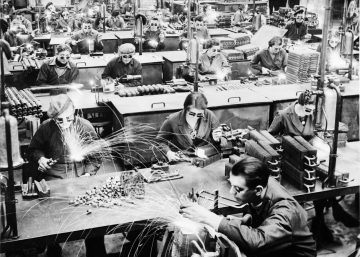 Over at the Next System Project’s podcast:
Over at the Next System Project’s podcast:
This week, we’re talking about how Social Wealth Funds can play a role in empowering both individuals and communities in the economy. Joining us is Maryland House of Delegates member Gabriel Acevero, Vice President at the Insight Center for Community and Economic Development Jhumpa Bhattacharya, and President of the People’s Policy Project, Matt Bruenig.
The Next System Podcast is available on iTunes, Soundcloud, Google Play, Stitcher Radio, Tune-In, and Spotify. You can also subscribe independently to our RSS feed here.
Also Peter Gowan in Jacobin on Rudolph Meidner, who once proposed one of the more ambitious proposals to broaden the distribution of wealth:
Rudolf Meidner, one of the primary architects of Sweden’s famed social-democratic model, once described private ownership as “a gun pointed at the temple of the labor movement.” He spent his career as a union economist trying to resolve the standoff in labor’s favor.
Meidner’s economic model — given form by an exceptionally strong Social Democratic Party (SAP) and labor movement — delivered sustained material gains to workers in the decades after World War II (and, because of robust growth, private business). Swedish workers enjoyed the fruits of an expanding welfare state while exercising unprecedented influence and control over a developed economy.
It was not enough — the gun remained in place, and by the 1970s, Meidner had concluded, along with the Swedish labor movement, that an alternative model of ownership was needed. “We want to deprive the owners of capital of the power which they wield,” Meidner explained.
All experience shows that influence and control is not enough — ownership plays a critical part. I refer to Marx and Wigforss: we cannot fundamentally transform society without also fundamentally changing ownership.
More here.
